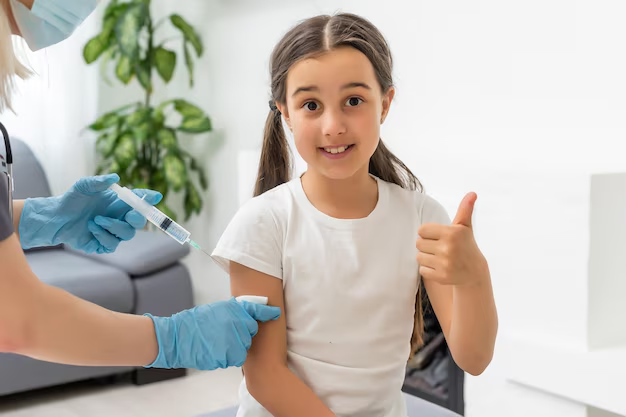When Should You Get the Measles Vaccine? Everything You Need to Know
For parents, guardians, and even adults, the decision of when to receive the measles vaccine is crucial, given the potential severity of the disease. As we delve into this topic, let’s explore the timing, importance, and implications of measles vaccinations, while also helping you understand why they are a cornerstone of public health today.
The Importance of the Measles Vaccine
Understanding Measles
Measles is a highly contagious viral disease that primarily affects children. It can cause significant health complications, including pneumonia, encephalitis, and even death. Since its introduction in the 1960s, the measles vaccine has drastically reduced cases worldwide, transforming the landscape of infectious disease prevention.
Why Vaccination Matters
Vaccination not only protects the individual receiving it but also contributes to herd immunity, particularly crucial for those unable to receive the vaccine due to medical reasons. This collective immunity is a key reason outbreaks are now less frequent and less severe in areas with high vaccination rates.
Recommended Schedule for the Measles Vaccine
For Children
The Centers for Disease Control and Prevention (CDC) recommends that children receive two doses of the Measles, Mumps, and Rubella (MMR) vaccine:
- First Dose: Administered at 12 to 15 months of age.
- Second Dose: Given at 4 to 6 years of age, coinciding with school entry.
These doses ensure a robust immune response, providing effective protection against measles.
For Adults
Adults who have not been vaccinated or have no evidence of immunity should consider the vaccine:
- Adults Born After 1957: Generally advised to have at least one dose, as they may not have had the natural infection during childhood.
- Healthcare Workers, International Travelers, and Students: Any adults in high-risk categories often require two doses to ensure immunity.
Special Considerations
Certain groups might need additional consultation:
- Pregnant Women: Should not receive the vaccine due to potential risks. It's advisable to discuss with healthcare providers about getting the vaccine after delivery.
- Immunocompromised Individuals: Those with weakened immune systems need tailored medical advice for safety purposes.
Common Concerns and Misconceptions
Safety of the Measles Vaccine
The MMR vaccine has undergone extensive testing and is considered safe and effective. Side effects are usually mild, such as fever or rash, and severe allergic reactions are rare.
Debunking Myths
Fears linking vaccines to autism have been extensively debunked. Numerous studies have confirmed no credible link between the MMR vaccine and autism spectrum disorders.
Planning Your Vaccination
Access and Availability
Vaccines are widely available at pediatricians' offices, clinics, and through public health programs. Many insurance plans cover vaccinations, but it's always wise to check specific policy details.
Tips for Parents
- Schedule Early: Talk to your child's doctor as they approach the eligible age.
- Keep Records: Maintain an updated vaccination record for school and travel purposes.
- Consult Regularly: Discuss any medical history concerns with healthcare providers to address specific needs.
For Adults
- Review Your Immunization History: Assess whether you've had prior vaccinations.
- Consider High-Risk Situations: If traveling or working in healthcare, evaluate your need for an updated dose.
- Seek Medical Advice for Past Infection: A blood test can determine immunity if unsure about past infections.
What to Expect After Vaccination
Immediate Reactions
Most individuals may experience no side effects, but some might notice mild symptoms—these are signs of the body building immunity.
Long-term Benefits
The key benefit is protection against measles complications, significantly minimizing long-term health issues.
Global Context: Measles Vaccination Worldwide
Variability in Vaccine Access
Access to vaccines varies globally. Some regions may face barriers due to infrastructure, education, or political factors, influencing measles control efforts.
Efforts to Increase Vaccination Rates
Organizations globally are working to increase vaccination coverage through education campaigns and support for low-income regions, aiming for eradication similar to what has been achieved with smallpox.
Final Insights
Understanding when and why to get the measles vaccine empowers individuals to make informed health decisions, not just for themselves but for their communities. Keeping up with vaccinations is a proactive step towards ensuring a healthier future for all. Should you have further questions, engaging with a healthcare professional is the best course of action to clarify personal concerns.
Quick Reference Summary
- 🍼 First Child Dose: 12-15 months
- 🎓 Second Child Dose: 4-6 years
- 🧑⚕️ Adult Guidance:
- Born after 1957 with no records: Get vaccinated.
- High-risk adults: Two doses may be recommended.
- 🔎 Key Tips:
- Safety first; consult healthcare providers.
- Verify insurance coverage and benefits.
- Maintain records for ease of access.
Staying informed about the measles vaccine helps safeguard health for generations to come. Vaccination is not just a personal choice; it’s a commitment to communal well-being. 🎯

Related Articles
- Are Measles Deadly
- Can Adults Get Measles
- Can You Get Measles If Immunised
- Can You Get Measles If Vaccinated
- Can You Get Measles If You Are Vaccinated
- Can You Get Measles If You Re Vaccinated
- Can You Get Measles If You're Vaccinated
- Can You Get Measles If You've Been Vaccinated
- Can You Get Measles More Than Once
- Can You Get Measles Twice
